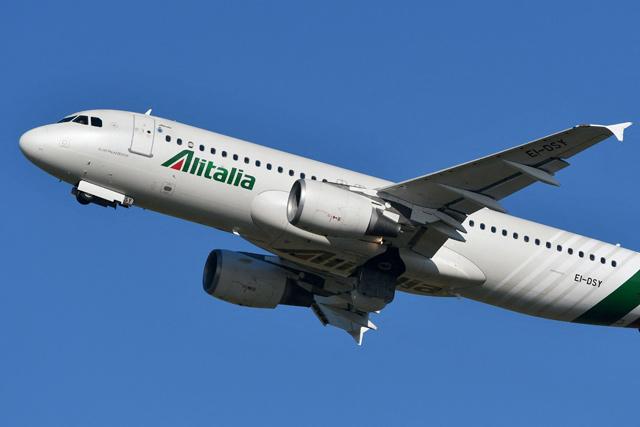- Mix
- Sun-2021-07-18 | 06:23 pm

Nayrouz News Agency :
Tough talks between Italy and the European Commission on a plan to replace struggling Alitalia have laid the groundwork for a new, streamlined flag carrier, the economy ministry said on Thursday.
Italia Trasporto Aereo (ITA) "will be fully operational" as of October 15, after Rome reached a "constructive and balanced solution" with Brussels, it said in a statement.
The new airline had initially been expected to launch in August, during the peak tourism season, but talks with the Commission dragged on even after a preliminary deal was reached in May.
The Commission, charged with policing state aid in the EU, is examining 1.3 billion euros ($1.5 billion) in state funds provided to Alitalia in 2017 and 2019.
On Thursday, the Commission said only that it had taken note of the Italian announcement and reiterated that it had "reached a common understanding on the key parameters to ensure economic discontinuity between ITA and Alitalia.
"The Commission remains in close contact with the Italian authorities to ensure that the launch of ITA as a new and viable market player is in line with EU state aid rules," a statement added.
The Commission has already insisted that the new airline mark a rupture with Alitalia, and not only by changing the name.
It noted that "legal investigations into past state aid to Alitalia continue".
But the Italian ministry said that the accord reached with Brussels will "guarantee the discontinuity necessary to comply with European regulations", and open the way for a planned capital hike for ITA.
It did not provide any figures, but a government source said that the first stage of recapitalisation would be on the order of 700 million euros.
ITA is to have a fleet half the size of Alitalia to begin with, and its ground operations and maintenance service would be spun off and airport slots ceded.
But the new airline could still be a majority shareholder alongside other investors in the company that takes over the ground operations, and hold a minority stake in the future maintenance group.
As for coveted airport slots that allow airlines to take off and land at a given destination, ITA would retain 85 per cent of those held by Alitalia at Milan's Linate airport, and 43 per cent of those at Rome Fiumicino, according to the draft industrial plan.
Job losses
"The foundation has been laid for a new, solid national carrier that is sustainable and independent, able to operate without interruption and with solid perspectives for growth and development," the ministry statement said.
The agreement with the Commission is expected to result in job losses, however.
More than 11,000 people work for Alitalia, including crew, maintenance and ground staff.
"It's unacceptable," a joint statement released by the Cgil, Cisl, Uiltrasporti and Ugl unions said.
They denounced "the carving up" of Alitalia, and described the plan as "weak" with "no prospects for the development of long-haul services".
Economic Development Minister Giancarlo Giorgetti said ITA would hire around 2,800 people in 2021 and another 5,750 in 2022.
Alitalia, whose fragile financial condition worsened during the coronavirus pandemic, had already been placed under state administration in 2017.
Italy failed to find an outside investor willing to take it over.










